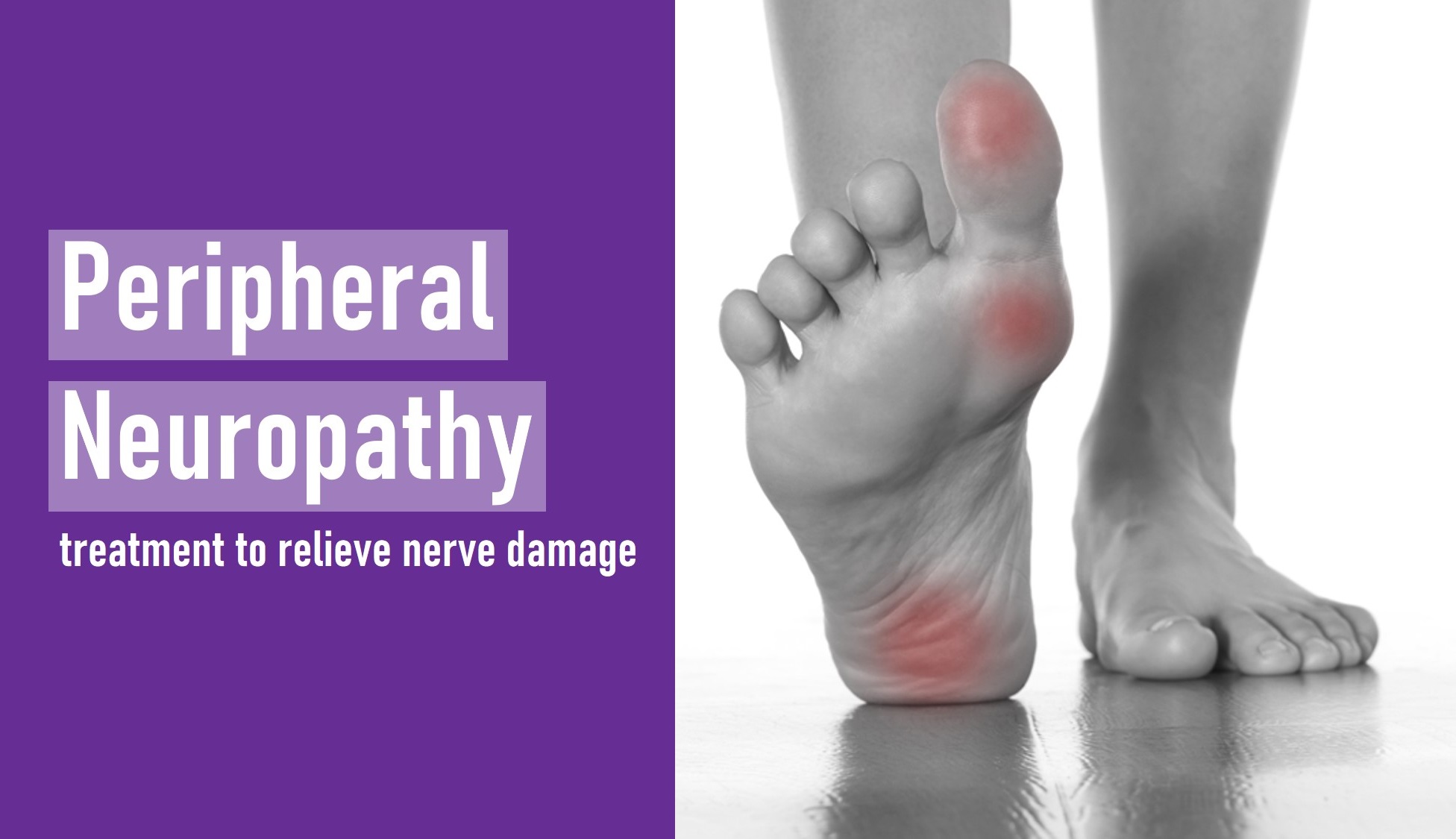What is peripheral neuropathy?
The name of the condition tells a bit about what it is –
Peripheral – beyond (in this case beyond the brain and spinal cord)
Neuro – related to nerves
pathy – disease
So peripheral neuropathy is a condition in which the nervous system that connects the nerves from your brain and spinal cord, or central nervous system, to the rest of your body, is damaged or diseased.
Basically, the job of these nerves is to deliver signals about physical sensations back to your brain. The damage disrupts the nerves’ normal functioning. They might send signals of pain when there’s nothing causing pain, or they might not send a pain signal even if something is harming you.
The disorder is uncomfortable, but treatments can be very helpful.
Symptoms of peripheral neuropathy
The most common symptoms of peripheral neuropathy are:
- numbness in the hands or feet
- sharp/stabbing pains
- tingling sensation in the hands or feet
- heavy feeling in the arms and legs
- buzzing sensation
- thinning of the skin
- drop in the blood pressure
- sexual dysfunction, especially in men
- digestive difficulty
- constipation
- excessive sweating
These symptoms can also indicate other conditions. Make sure you tell your neurologist about all of your symptoms.
Causes of peripheral neuropathy
People who have a family history of peripheral neuropathy are more likely to develop this disorder. People with diabetes have a high risk of neuropathy. However, there are many other factors that can cause peripheral neuropathies, so it is often difficult to pinpoint the origin.
Generalized diseases
Being overweight, high blood pressure, age (usually above 40), diabetes, etc.
Chronic diseases
Kidney disorders, hypothyroidism, deficiencies of vitamins (E, B1, B6, B12), chronic inflammation damaging connective tissues surrounding nerves.
Injury
Physical trauma (accident, falls or fractures), inactivity, increased pressure on the median nerve, etc.
Environmental factors
Severe alcoholism, poor nutrition, certain toxins and infections.
Autoimmune disorders
Conditions where nerves are mistakenly attacked by the body’s own immune system or damaged by an overaggressive response to injury.
Peripheral neuropathy treatment
The treatment of peripheral neuropathy is based on treating the underlying disorder. Like if diabetes is the cause, then the treatment will be to keep it under control. And if vitamin deficiency is the identified cause, then correcting the deficiency is the treatment.
Medications
Medications can relieve pain and reduce burning, numbness, and tingling.
Physical therapy
Uses a combination of focused exercise, massage and other treatments to help you increase your strength, balance and range of motion.
Managing neuropathy
Non-steroidal anti-inflammatory drugs (NSAIDs), such as ibuprofen, may help control pain. These are available over the counter.
Medical aids
Such as braces and specially designed shoes, casts and splints can help reduce pain by providing support or keeping the affected nerves in proper alignment.
Self-care
Acupuncture, massage, meditation, yoga, chiropractic care, etc.
In a nutshell…
If your neuropathy is due to an underlying, treatable condition, you may be able to stop your peripheral neuropathy by treating the larger problem. If the underlying cause of the neuropathy can’t be treated, then the goal is to manage the symptoms of neuropathy and improve your quality of life.
See a neurologist nearby immediately as soon as you notice symptoms of neuropathy. It can also be a symptom of a serious disorder. If left untreated, peripheral neuropathy can lead to permanent nerve damage.
Do you have questions about neuropathy or managing the conditions? Make an appointment with peripheral neuropathy doctor in Ahmedabad – Dr. Vishal Jogi.







